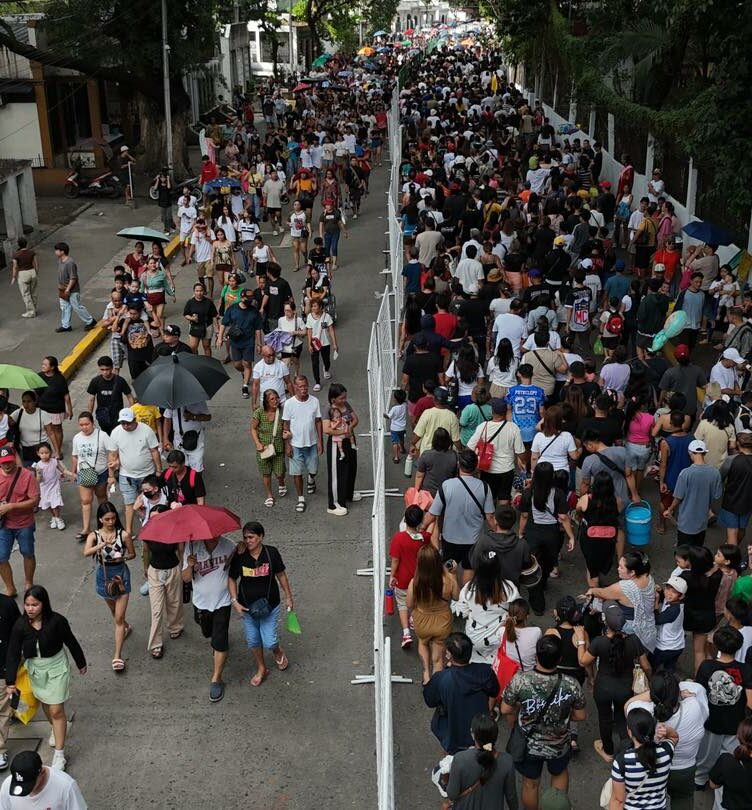CLICK here, click there.
The Generation Z, whose demographic is born into a world interwoven with the internet and technology, have an innate fluency in the language of likes, comments, and shares. As they are being called digital natives, their dynamic digital ecosystem is an integral extension of their lives making it both a source of entertainment and political engagement.
Several studies suggest that youth participation has mostly shifted their political dialogue from the streets to the online domain. Influencers who emerge as a breed of public figures play a significant role in amplifying political discourse and mobilization through their relatable contents, hashtags, and memes.
Given the cultivation of their followings, it is easier for them to spread information with the help of their followers who either accept or reject what they posted.
Now that election season is coming, how do these online voices translate into informed and meaningful participation?
A Gen Z Perspective on Social Media’s Power
For many Gen Zs, scrolling through their feeds is not just about staying updated with their friends’ happenings, but a useful act to engage in politics. Whether seeking it out or not, politics is there. Alive and infiltrated the digital spaces.
“Lots of my friends share information regarding politics, especially kapag mayroong issues. Napansin ko lang na mabilis mag-boom ang isang content if it aligns someone’s opinion,” Melanie Alberto, 23, told republicasia.
For Melanie, despite the fact that information is easily accessible through social media, the verification process is needed to ensure that the information she consumes is based on facts. “Influencers speak our language. They make contents that are understandable through their short-form videos. In fact, even those influencers who are not primarily into politics often share perspectives in a way that resonates with their audience,” she said.
As someone who scrolls for more than 10 hours a day, Melanie saw how social media is being used for campaign ads, personal stories, creative content, and a call to action that motivated her to get involved.
“Last 2022 election, I had no plans to register and vote but as my online friends and favorite creators shared information about the running candidates and explained the importance of voting, I was encouraged,” she added.
The hashtags circulating online serve as an amplified call for Melanie. But these advantages have their downsides which she later on acknowledged. “The spread of fake news is actually a concern kasi some people share it as it only agrees with their belief. Added pa na the negativity and heated arguments are draining.”
Indeed, social media is good but with its misuse, it becomes a threat for those who do not fact-check. But despite the challenges it brings, social media made politics more visible where opinions are formed that could possibly lead to the motivation in taking action.
This is how the feed becomes the direct line in shaping votes. Therefore, Gen Z must establish a clear understanding of the issues being discussed to navigate the digital space effectively that will ultimately translate into informed decisions at the ballot box.
The Role of Platforms
Apart from influencers and their followers, the social media platforms play a crucial role in shaping Gen Z’s political engagement. The information people see repeatedly is due to the underlying algorithms, feature designs, and content policies.
For instance, the algorithms on the feeds are made for engagement purposes. While this leads to more relatable content, it can also amplify sensationalism and fake news content. Moreover, individuals are mostly faced with information reinforcing their viewpoints due to the fact that an echo chamber effect is in play, with these algorithms showing users only content that conforms to their beliefs and behaviors online. Such selective exposure might limit their interactions with different perspectives and possibly lead to group polarization that can strengthen their beliefs and foster more extreme viewpoints.
Therefore, given that an echo chamber is present where people are exposed to contents that aligns their beliefs, polarization is a reality not just a possibility.
Content moderation policies, while seen as good for its intent to protect users, can be used to suppress voices in the digital space. From the harm it holds, these policies raise concern about the potential bias and censorship which limits the diversity of perspectives people encounter online.
Furthermore, the feature designs can contribute to the user behaviour. The like, share, and comments can create a sense of urgency to users that leads to how they process and react to it without critically evaluating the contents.
Therefore, the responsibility of having an informed political participation extends beyond its users. Social media platforms must be responsible in addressing the challenges posed by these things to create a more safe space for political discourse.
The social media platforms’ willingness to shape it responsibly will determine their stance on a key issue: will it be a tool to empower informed votes or it will be breeding ground for fake news?
Well, the future of politics hangs in the balance.
With reports from Maricel J. Galut
How useful was this post?
Click on a star to rate it!
Average rating 0 / 5. Vote count: 0
No votes so far! Be the first to rate this post.
We are sorry that this post was not useful for you!
Let us improve this post!
Tell us how we can improve this post?






